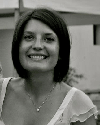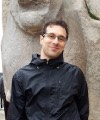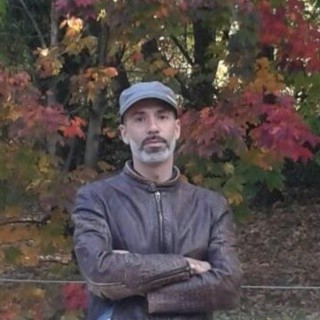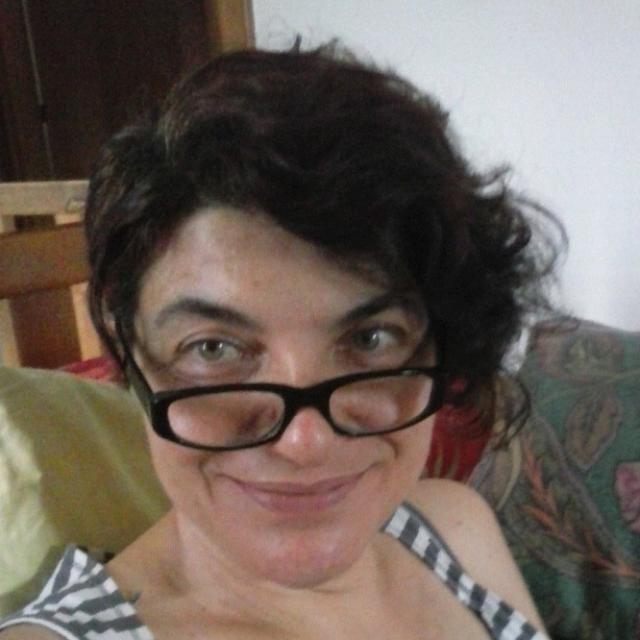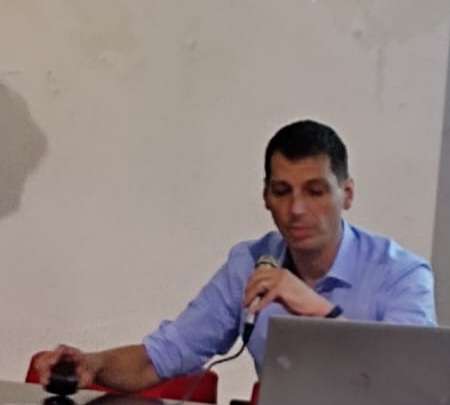Studying at the University of Verona
Here you can find information on the organisational aspects of the Programme, lecture timetables, learning activities and useful contact details for your time at the University, from enrolment to graduation.
Academic calendar
The academic calendar shows the deadlines and scheduled events that are relevant to students, teaching and technical-administrative staff of the University. Public holidays and University closures are also indicated. The academic year normally begins on 1 October each year and ends on 30 September of the following year.
Course calendar
The Academic Calendar sets out the degree programme lecture and exam timetables, as well as the relevant university closure dates..
| Period | From | To |
|---|---|---|
| Sem. 1A | Sep 24, 2018 | Nov 10, 2018 |
| Sem. 1B | Nov 19, 2018 | Jan 12, 2019 |
| Sem. 2A | Feb 18, 2019 | Mar 30, 2019 |
| Sem. 2B | Apr 8, 2019 | Jun 1, 2019 |
| Session | From | To |
|---|---|---|
| Sessione d'esame invernale | Jan 14, 2019 | Feb 16, 2019 |
| Sessione d'esame estiva (gli esami sono sospesi durante la sessione di laurea) | Jun 3, 2019 | Jul 27, 2019 |
| Sessione d'esame autunnale | Aug 26, 2019 | Sep 21, 2019 |
| Session | From | To |
|---|---|---|
| Sessione di laurea estiva | Jul 8, 2019 | Jul 13, 2019 |
| Sessione di laurea autunnale | Nov 4, 2019 | Nov 9, 2019 |
| Sessione di laurea invernale | Mar 30, 2020 | Apr 4, 2020 |
| Period | From | To |
|---|---|---|
| Festa di Ognissanti | Nov 1, 2018 | Nov 1, 2018 |
| Sospensione dell'attività didattica | Nov 2, 2018 | Nov 3, 2018 |
| Festa dell’Immacolata | Dec 8, 2018 | Dec 8, 2018 |
| Vacanze di Natale | Dec 24, 2018 | Jan 5, 2019 |
| Vacanze di Pasqua | Apr 19, 2019 | Apr 23, 2019 |
| Sospensione attività didattica | Apr 24, 2019 | Apr 27, 2019 |
| Festa della liberazione | Apr 25, 2019 | Apr 25, 2019 |
| Festa del lavoro | May 1, 2019 | May 1, 2019 |
| Sospensione dell' attività didattica | May 20, 2019 | May 20, 2019 |
| Festa del Santo Patrono | May 21, 2019 | May 21, 2019 |
| Festa della Repubblica | Jun 2, 2019 | Jun 2, 2019 |
| Vacanze Estive | Aug 12, 2019 | Aug 17, 2019 |
Exam calendar
Exam dates and rounds are managed by the relevant Culture and Civilisation Teaching and Student Services Unit.
To view all the exam sessions available, please use the Exam dashboard on ESSE3.
If you forgot your login details or have problems logging in, please contact the relevant IT HelpDesk, or check the login details recovery web page.
Should you have any doubts or questions, please check the Enrollment FAQs
Academic staff
 liampaul.benison@univr.it
liampaul.benison@univr.it
 riccardo.bertolazzi@univr.it
riccardo.bertolazzi@univr.it
 luca.bochicchio@univr.it
luca.bochicchio@univr.it
 dario.donetti@univr.it
dario.donetti@univr.it
 stefania.pontrandolfo@univr.it
stefania.pontrandolfo@univr.it
Study Plan
The Study Plan includes all modules, teaching and learning activities that each student will need to undertake during their time at the University.
Please select your Study Plan based on your enrollment year.
1° Year
| Modules | Credits | TAF | SSD |
|---|
2° Year activated in the A.Y. 2019/2020
| Modules | Credits | TAF | SSD |
|---|
3° Year activated in the A.Y. 2020/2021
| Modules | Credits | TAF | SSD |
|---|
| Modules | Credits | TAF | SSD |
|---|
| Modules | Credits | TAF | SSD |
|---|
| Modules | Credits | TAF | SSD |
|---|
| Modules | Credits | TAF | SSD |
|---|
Legend | Type of training activity (TTA)
TAF (Type of Educational Activity) All courses and activities are classified into different types of educational activities, indicated by a letter.
Prehistory (i) (2019/2020)
Teaching code
4S004609
Teacher
Coordinator
Credits
6
Also offered in courses:
- Prehistory (i) of the course Bachelor’s degree in Humanities
Language
Italian
Scientific Disciplinary Sector (SSD)
L-ANT/01 - PREHISTORY AND EARLY HISTORY
Period
Sem 2A dal Feb 17, 2020 al Mar 28, 2020.
Learning outcomes
Il corso è finalizzato a preparare lo studente a trattare i temi generali dell'evoluzione culturale ed economica delle società umane dal Paleolitico al Neolitico, mettendoli in relazione con le principali variazioni climatiche ed ecologiche del Pleistocene. Gli ambiti geografici di pertinenza sono il continente africano, quello asiatico sudoccidentale e soprattutto l'Europa, teatro di importanti cambiamenti geografici, climatici e bio-culturali.
Program
Programme
The course covers the chronological and cultural interval spanning from the oldest appearance of Modern Human Behaviour in Africa, represented from a set of different evidence, up to the complex record of last hunter-gatherers and the first productive neolithic societies.
Out of Africa: following the geographic dispersion from the African continent of the species of Hominins which succedeed up to the Anatomically Modern Humans, the most important steps in the evolution of culture will be taken into consideration.
The chronology of the Palaeolithic, the Mesolithic and the Neolithic will be the reference scale for discussing the impact of innovations in technology that have supported the human population to interact in a more complex way with the ecological context than in earlier times. The dynamics of human peopling will be assessed in relation to modifications in the distribution of lithic, vegetal and alimentary resources.
The main topics are listed below:
Introduction
Object and methods of Prehistoric Archaeological Research.
Sources of information for Prehistory. Sciences involved in the reconstruction of prehistoric life.
Data interpretation.
Unit 1: Lower Palaeolithic
-- Quaternary Chronology
- General notions of Palaeoanthropology
- Basic notions of Physical Geography, Palaeoclimatology and Palaeoecology
- the emergence of the first knapping stone technologies in Africa and their impact;
- the first southeuropean peopling, contests and models;
- appearance of bifaces, the Acheulean and the North-european peopling.
Unit 2: Middle Palaeolithic
- from the Lower to the Middle Palaeolithic, technological changes and in the Human-resources interaction;
- the age of the Neandertal Man: economy, technologies, settlements;
- the appearance of Homo sapiens in Africa and the first spreads;
- Anatomically Modern Humans and the Others: the state of art. Hypotheses, models and methodological problems;
- The Neandertal demise in Eurasia.
Unit 3: Upper Palaeolithic
- The lower and middle phases of the Upper Palaeolithic: Aurignacian and Gravettian and climatic and ecological interactions;
- The Upper Palaeolithic during the Late-Glacial, demographic increase;
Unit 4: Mesolithic and Neolithic
- The Holocene, the Mesolithic, the colonization of the ecological extremes, the demographic increase.
- The Neolithic, the first colonization of Europe and Italy, settlements and cultures.
Unit 5: Neolithic and the beginning of Copper Age
- cultures and settlements of Northern Italy
- metallurgy and transformation processes
- Settlements, funeral practices and economy of Copper Age
| Author | Title | Publishing house | Year | ISBN | Notes |
|---|---|---|---|---|---|
| A. Pessina, V. Tinè | Archeologia del Neolitico. L'Italia tra sesto e quarto millennio. (Edizione 1) | Carocci | 2008 | ||
| Marco Peresani | Come Eravamo. Viaggio nell'Italia paleolitica (Edizione 264) | Il Mulino | 2018 | 9788815275295 | |
| D. Cocchi Genick | Preistoria | QuiEdit | 2009 |
Examination Methods
The aim of the examination is to check the achievement of the educational objectives already described.
The examination will be an oral interview. In the first step, the student will describe and further develop a topic or a case study connected to the programme that she/he has freely chosen; some questions will verify the knowledge and comprehension of the programme, as far as both methods and contents are concerned.
Due to the Coronavirus pandemic, and in accordance with the University of Verona guidelines, during the 2020 summer session the assessment modality will be modified as follows: online oral exam.
Type D and Type F activities
| years | Modules | TAF | Teacher |
|---|---|---|---|
| 1° 2° 3° | "caro mostro. duecento anni di frankenstein" | F |
Nicola Pasqualicchio
(Coordinator)
|
| 1° 2° 3° | Lectures "Musiche/Culture/Civiltà" | F |
Vincenzo Borghetti
(Coordinator)
|
| 1° 2° 3° | Castelvecchio Lectures (City Art Museums) | F |
Alessandra Zamperini
(Coordinator)
|
| 1° 2° 3° | C.T.G. Lectures | F |
Alessandra Zamperini
(Coordinator)
|
| 1° 2° 3° | Graphic and photographic documentation of the archaeological artefacts: from traditional drawings to digital sources | F |
Diana Sergeeva Dobreva
(Coordinator)
|
| 1° 2° 3° | Giovedì' culturali dell'ISSR I ciclo | F |
Tiziana Franco
(Coordinator)
|
| 1° 2° 3° | Ceramica romana nell'Adriatico. Produzione, tipologia e distribuzione | F |
Diana Sergeeva Dobreva
(Coordinator)
|
| 1° 2° 3° | Univero’ 2018 | F |
Tiziana Franco
(Coordinator)
|
Career prospects
Module/Programme news
News for students
There you will find information, resources and services useful during your time at the University (Student’s exam record, your study plan on ESSE3, Distance Learning courses, university email account, office forms, administrative procedures, etc.). You can log into MyUnivr with your GIA login details: only in this way will you be able to receive notification of all the notices from your teachers and your secretariat via email and soon also via the Univr app.
Graduation
List of theses and work experience proposals
| theses proposals | Research area |
|---|---|
| Ambiti di tesi | Art & Architecture - Art & Architecture |
| Stage | Research area |
|---|---|
| Lavorare in archivio | Various topics |

 +39 045802 8351
+39 045802 8351











